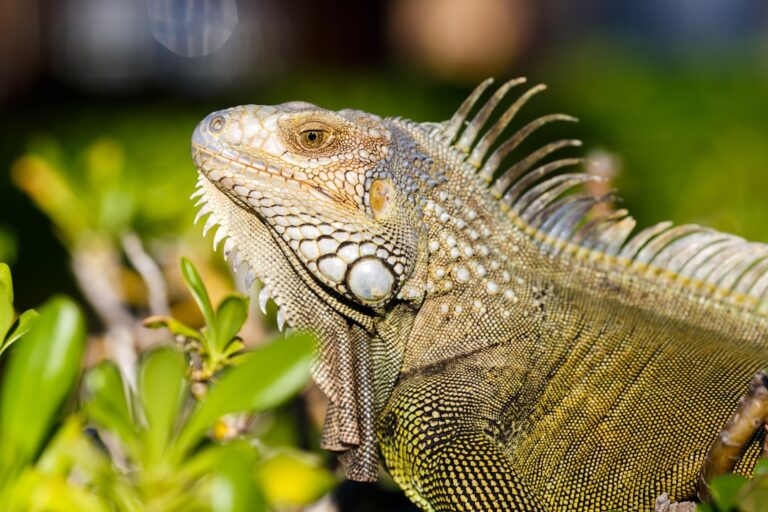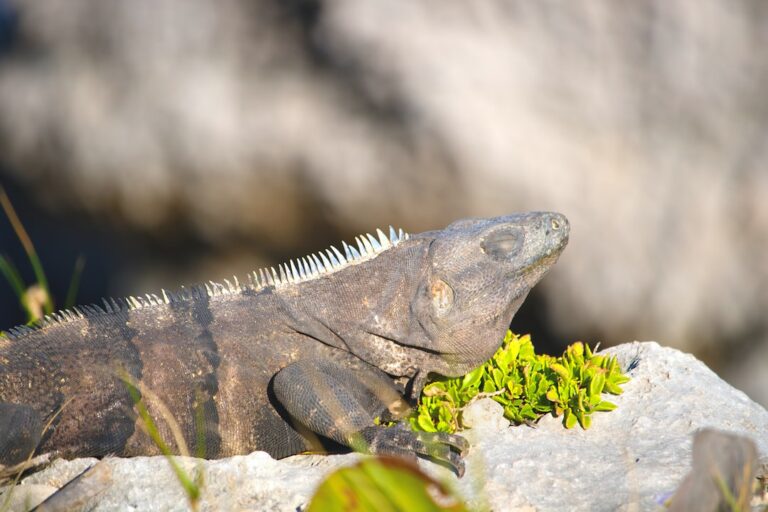Why Do Iguanas Dig?
Iguanas are fascinating creatures that have captured the attention of reptile enthusiasts around the world. These large, herbivorous lizards are known for their unique appearance and interesting behaviors. One behavior that is particularly important to understand is their instinct to dig. In this article, we will explore the natural instincts of iguanas, specifically their digging behavior, and why it is crucial for iguana owners to have a deep understanding of this behavior.
Table of Contents
The Natural Instincts of Iguanas: Why They Dig
Iguanas have a natural instinct to dig, which is deeply rooted in their survival instincts in the wild. In their natural habitat, iguanas live in tropical and subtropical regions where they rely on digging to create burrows for shelter and protection. These burrows serve as a safe haven from predators and provide a stable microclimate for the iguanas to regulate their body temperature.
Digging also plays a crucial role in the reproduction of iguanas. Female iguanas dig nests in the ground to lay their eggs, ensuring that they are protected and insulated during the incubation period. This behavior allows the eggs to develop properly and increases the chances of survival for the offspring.
Understanding the Behavior of Iguanas: Digging Explained
The digging behavior of iguanas is unique compared to other reptiles. Unlike some reptiles that dig primarily for hunting or foraging purposes, iguanas dig primarily for shelter and reproduction. They use their strong claws and powerful limbs to excavate the soil, creating burrows or nests.
Iguanas are meticulous diggers, often taking their time to carefully construct their burrows or nests. They use their snouts and claws to remove soil, creating tunnels or chambers that provide them with a safe and secure environment. The depth and complexity of these burrows can vary depending on factors such as the availability of suitable soil and the presence of predators.
The Benefits of Digging for Iguanas: A Closer Look
Digging is not just a natural instinct for iguanas; it also provides several benefits for their physical and mental health. By digging burrows, iguanas create a safe space where they can retreat from predators and extreme weather conditions. These burrows also help regulate their body temperature, allowing them to stay cool in hot climates and warm in cooler climates.
Digging also provides mental stimulation for iguanas. It allows them to engage in natural behaviors and satisfy their instinctual needs. The process of digging requires physical exertion, which helps keep iguanas active and fit. It also provides them with a sense of security and comfort, reducing stress and promoting overall well-being.
Environmental Factors that Influence Iguana Digging
Several environmental factors can influence the digging behavior of iguanas. Temperature and humidity play a crucial role in determining when and where iguanas dig. In warmer climates, iguanas may dig deeper burrows to escape the heat, while in cooler climates, they may dig shallower burrows to stay warm.
Natural light is another important factor that influences iguana digging behavior. Iguanas are diurnal creatures, meaning they are most active during the day. They rely on natural light cues to regulate their behavior, including when to dig. Artificial lighting can disrupt this natural rhythm and may affect their digging behavior.
The Significance of Soil Type for Iguanas
The type of soil available to iguanas can greatly impact their digging behavior. Soft, loose soil is ideal for digging as it allows them to easily excavate tunnels and chambers. Sandy or loamy soils are preferred by iguanas as they provide good drainage and are easy to manipulate.
On the other hand, compacted or rocky soils can make digging difficult for iguanas. These types of soils may require more effort and energy to dig through, which can discourage them from engaging in their natural digging behavior. It is important for iguana owners to provide suitable soil substrates in their enclosures to encourage digging.
The Connection Between Iguana Diet and Digging Behavior
Iguana diet plays a significant role in their digging behavior. A balanced diet that includes a variety of fruits, vegetables, and leafy greens provides the necessary nutrients for iguanas to maintain their health and energy levels. When iguanas are well-nourished, they are more likely to engage in natural behaviors such as digging.
A lack of proper nutrition can lead to lethargy and decreased activity levels in iguanas, which may result in a decrease in digging behavior. It is crucial for iguana owners to provide a well-rounded diet that meets the nutritional needs of these reptiles to ensure they have the energy and motivation to engage in their natural behaviors.
How to Encourage or Discourage Iguana Digging
Iguana owners may want to encourage or discourage digging behavior depending on their specific circumstances. To encourage digging, providing a suitable substrate such as soft, loose soil or sand can create an environment that mimics their natural habitat. Adding hiding spots or tunnels within the enclosure can also stimulate their natural instincts.
On the other hand, if iguana digging becomes problematic or destructive, there are ways to discourage this behavior. Providing alternative outlets for their natural instincts, such as climbing structures or enrichment activities, can redirect their energy away from digging. Additionally, ensuring that the enclosure is secure and escape-proof can prevent them from digging their way out.
Common Problems Associated with Iguana Digging and How to Address Them
While digging is a natural behavior for iguanas, it can sometimes lead to problems for iguana owners. One common issue is the destruction of plants or landscaping in outdoor enclosures. To address this problem, creating designated digging areas with suitable substrates can redirect their digging behavior away from plants.
Another problem associated with iguana digging is the potential for escape. Iguanas are skilled diggers and can create tunnels that allow them to escape from enclosures. To prevent this, it is important to regularly inspect enclosures for any signs of digging and reinforce the walls or floors if necessary.
Tips for Iguana Owners: How to Provide a Safe and Stimulating Digging Environment
To provide a safe and stimulating digging environment for iguanas, there are several tips that iguana owners can follow. Firstly, ensure that the enclosure is spacious enough to accommodate their natural digging behavior. Providing a variety of substrates such as soft soil, sand, or mulch can give them options for digging.
Creating hiding spots or tunnels within the enclosure can also stimulate their natural instincts and provide them with a sense of security. It is important to monitor their behavior and make adjustments as needed to ensure they have a safe and enriching environment.
Understanding iguana digging behavior is crucial for iguana owners to provide a safe and healthy environment for these reptiles. Digging is a natural instinct deeply rooted in their survival instincts and plays a significant role in their physical and mental well-being. By understanding the reasons behind their digging behavior and providing suitable environments, iguana owners can ensure that their pets thrive and lead fulfilling lives.
If you’re curious about why iguanas dig, you might also be interested in learning about why turtles dig holes. Turtles are known for their digging behavior, and it serves various purposes. To find out more about this fascinating behavior, check out the article “Why Do Turtles Dig Holes?” on Reptile Friend. It explores the reasons behind turtles’ digging habits and provides insights into their natural instincts and behaviors.







